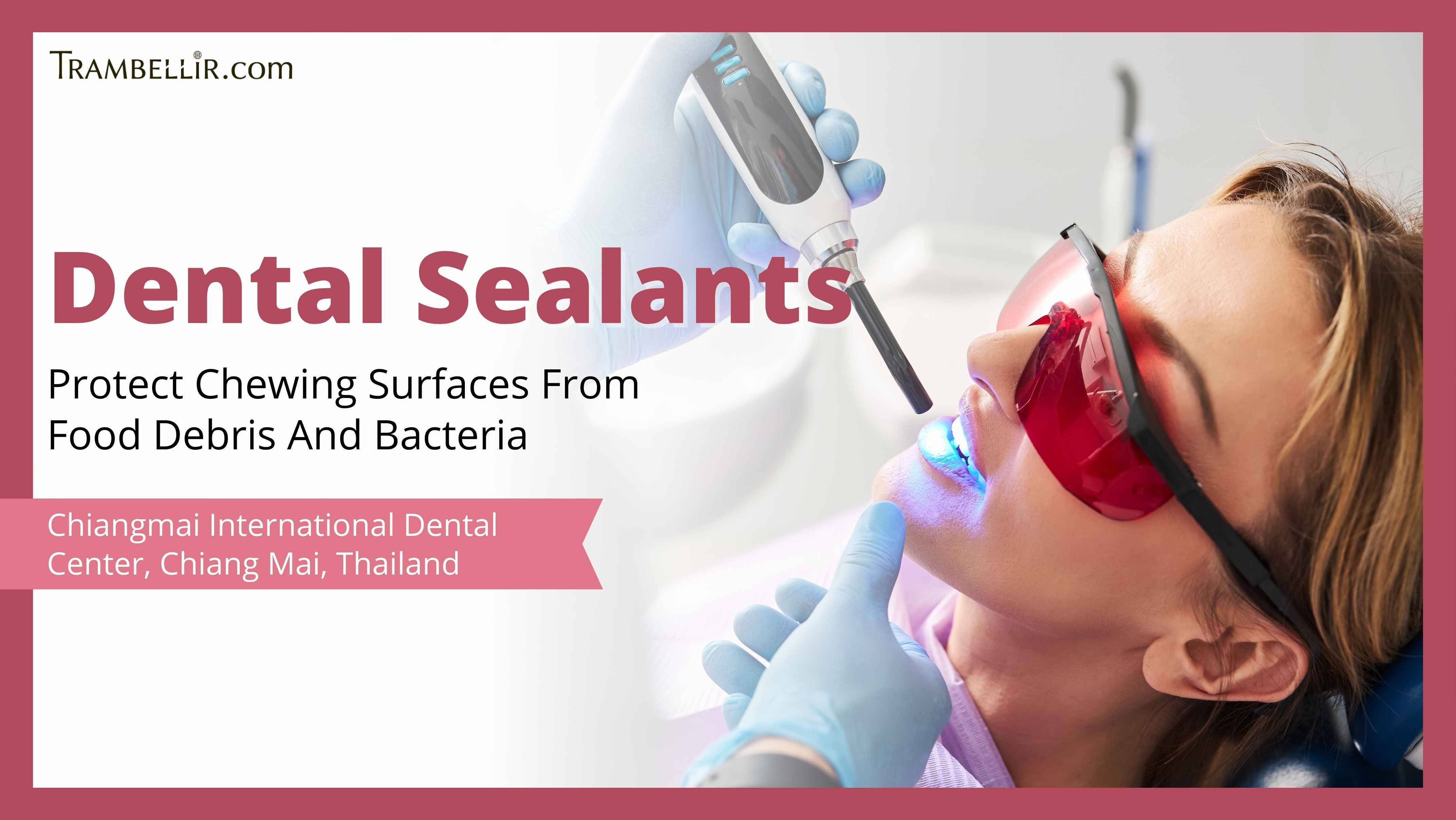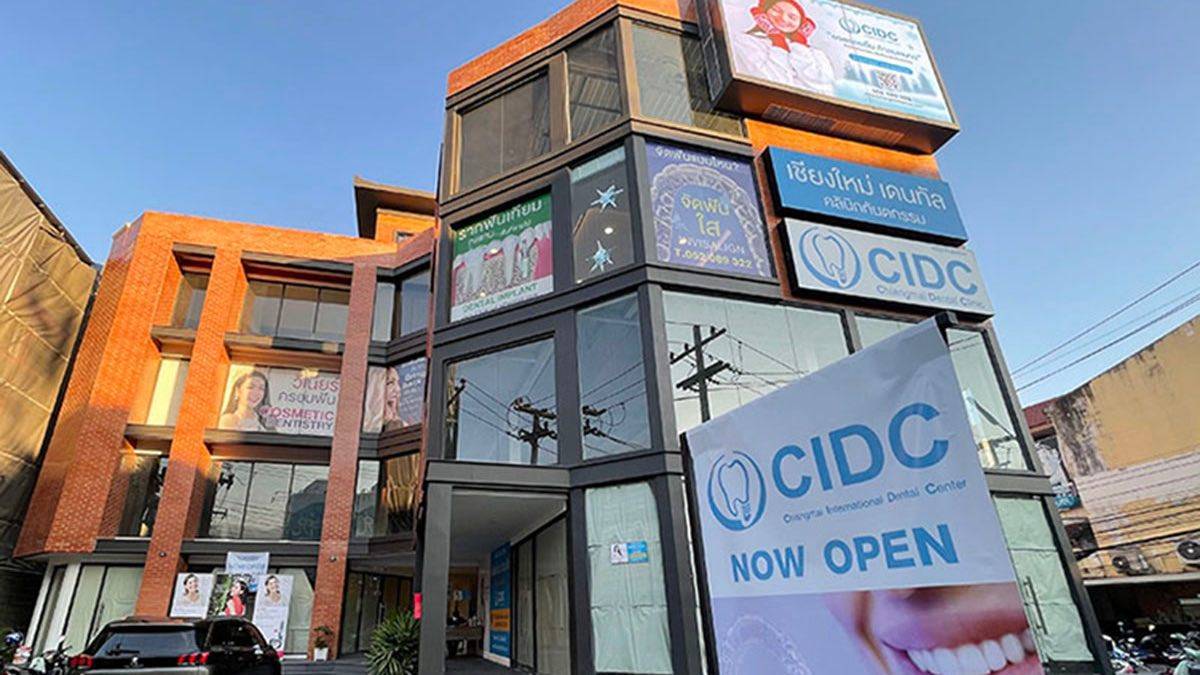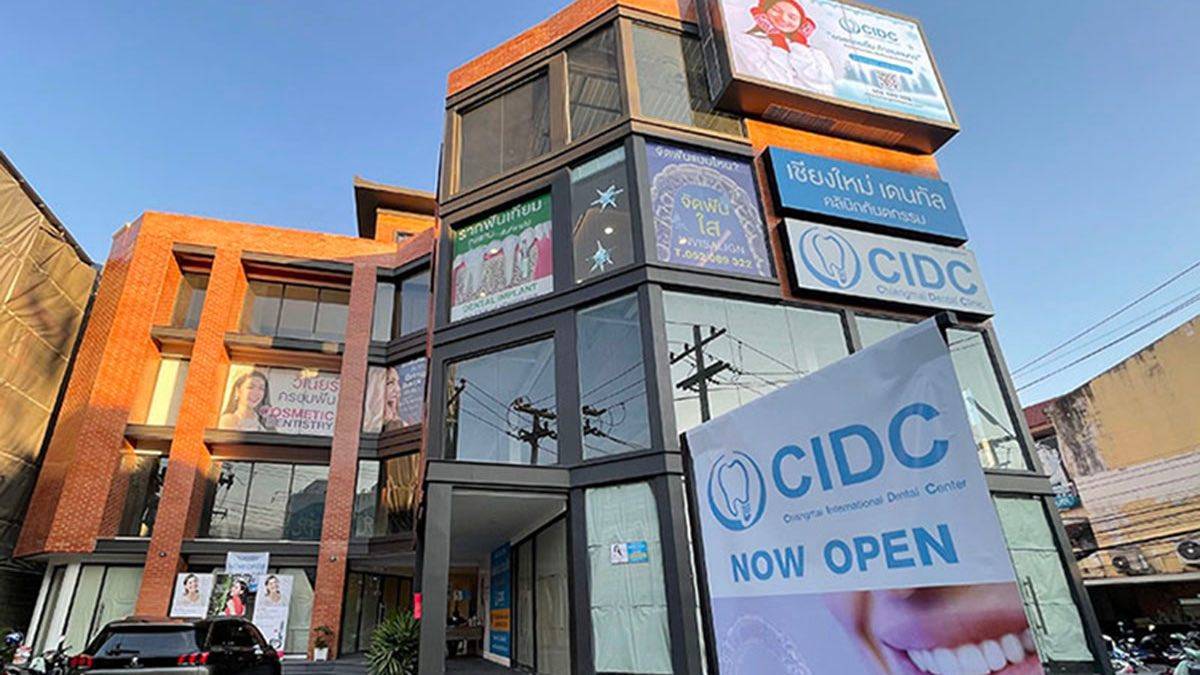It Is Suitable For
· Those in Chiang Mai looking for preventive dental care.
· Those with cavities.
· Those with difficulty brushing or flossing properly.
· Those who want to prevent tooth decay.
· Those who wish to have extra protection for their teeth.
What Is Dental Sealants?
Dental Sealants are a kind of protective coating that is applied to the top (chewing) surfaces of the back teeth, mainly the molars and premolars. These teeth have deep grooves and pits, which can easily trap bits of food and bacteria, even if brushed regularly. Over time, this can lead to tooth decay and cavities. Sealants act like a barrier, blocking those grooves and making it harder for food or germs to get stuck in them.
Dental Sealants are often applied to children’s teeth as soon as their permanent molars come in, but adults can also benefit from them, especially those who are prone to cavities or have deep grooves in their teeth.
How It Works
Dental Sealants work by adding a thin, protective layer over the top (chewing) surface of the molars and premolars. The sealants are made from a type of safe plastic or resin material. When the sealants are applied, the liquid material flows into the small grooves and then hardens, forming a smooth, sealed surface that keeps out food and germs. Once the sealants are in place, it acts like an invisible shield, making it much harder for harmful substances to stick to the teeth or cause damage. The smoother surface is easier to clean with regular brushing and helps reduce the buildup of plaque. Some sealants can even release small amounts of fluoride, which helps to strengthen the tooth enamel. While sealants do not replace and floss, they give the teeth extra protection and lower the risk of cavities, especially in the hard-to-clean back teeth.
Dental Sealants Procedure
1. Consultation and examination for teeth condition will be done.
2. The teeth will be cleaned.
3. The teeth will be dried completely; a small piece of cotton or suction tool will be used to keep the area dry.
4. A gel will be applied to the tooth surface.
5. The teeth will be rinsed and dried again after the gel is removed.
6. Dental Sealants will be painted onto the grooves and pits of the teeth using a small brush.
7. Sealants will be hardened using a special blue light.
8. The teeth will be checked to make sure the sealants are set correctly.
Advantages and Limitations of Dental Sealants
<Advantages>
· Protects the hard-to-clean teeth
· Avoids future dental complications
· Strengthens tooth enamel
· Prevents bacteria from entering tiny grooves
· Lowers the chance of gum inflammation
<Limitations>
· Temporary sensitivity might occur for 1 to 3 days after the treatment
Dental Sealants Preparation
· Avoid eating hard, sticky, or sugary food 24 hours before the treatment
· Inform doctor for any allergies to dental materials
Dental Sealants Post Care
· Avoid eating hard, sticky, or sugary food for 1 to 2 days after the treatment
· Use soft toothbrush for 2 to 3 days after the treatment if the teeth feel slightly sensitive
· Refrain from chewing on very hard items such as ice for at least 1 week to let sealants fully settle
FAQ
Q1: How long does Dental Sealants procedure take?
A1: Dental Sealants procedure takes approximately 30 minutes.
Q2: Can Dental Sealants be applied to teeth with braces?
A2: Yes, Dental Sealants can be applied to teeth with braces, the dentist at our affiliated clinic will carefully clean and prepare the teeth before applying sealants around brackets or wires.
Q3: Can Dental Sealants help with tooth sensitivity?
A3: Dental Sealants mainly prevent cavities but can sometimes reduce sensitivity by covering exposed grooves and protecting the tooth surface.
Q4: Are there any foods I should avoid after getting Dental Sealants?
A4: It is recommended to avoid very hard foods such as nuts or ice, and sticky food like caramel or chewing gum for at least 1 to 2 days after Dental Sealants, and try to limit these foods regularly to keep Dental Sealants intact.
Q5: Is there any special cleaning needed after Dental Sealants?
A5: No, there is no special cleaning required after Dental Sealants, regular brushing and flossing routine is sufficient to keep teeth with sealants healthy.
Clinic Information
[Clinic Name] Chiangmai International Dental Center
[Location] Chiang Mai, Thailand
[Nearest Station/ Nearest Tourist Destination] 15 mins driving distance from CNX airport; Walking distance to hotel accommodations and shopping malls
[Clinic Opening Time] Monday - Saturday (10:00AM - 8:00PM); Sunday (10:00AM - 6:00PM)
Terms of Service
Trambellir is a health tourism platform and does not in any way provide, promote, or sell any
medication or medical treatment to the Customers.
Customers are advised to contact the healthcare providers directly for any enquiries related to
medical treatments.



